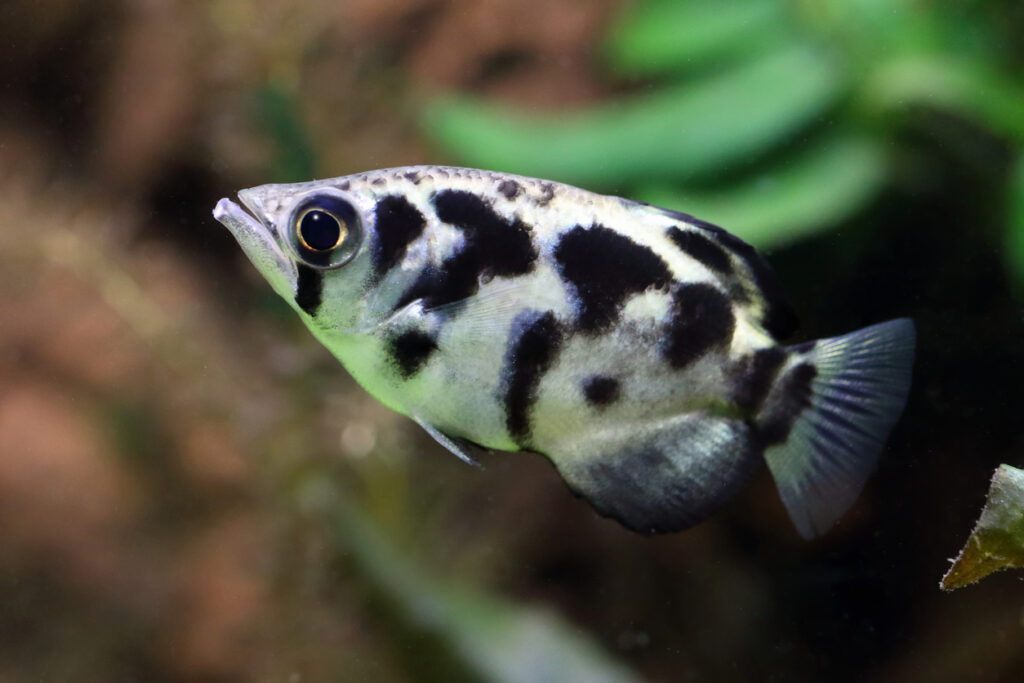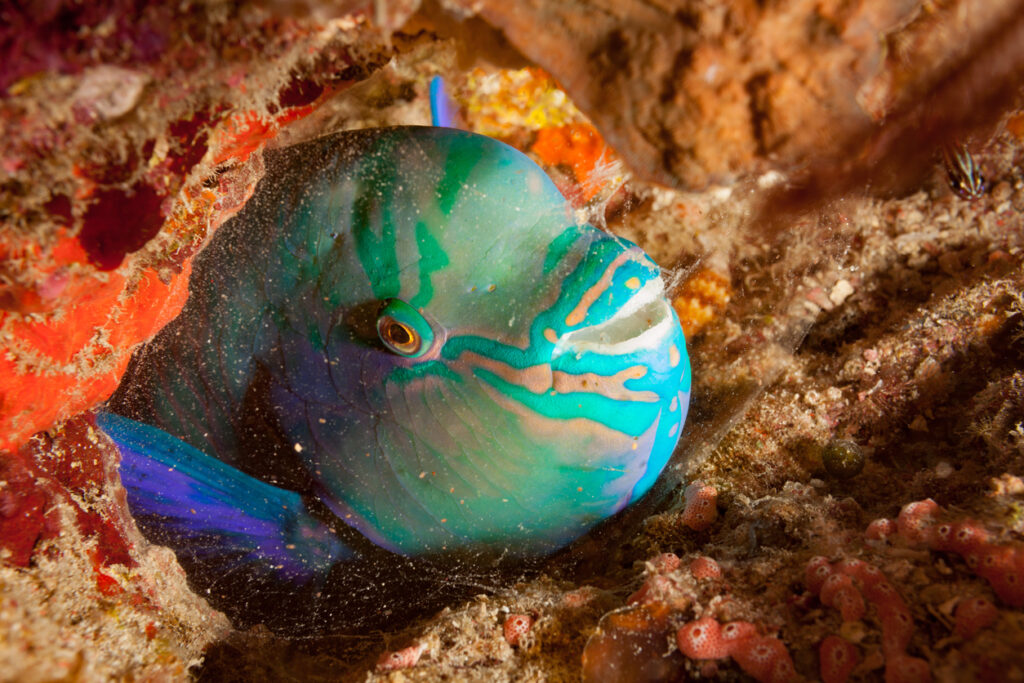If you’ve ever wondered, “do fish sleep at night?”, you’re not alone.
It’s amazing how many visitors to Blue Planet Aquarium ask about the sleeping habits of our residents, along with other slumber-related queries like “do fish close their eyes?”, “do fish yawn?”, and “do fish hibernate?”.
So, to answer such questions once and for all, we thought it was high time we dedicated a whole blog to the sleeping habits of fish. Find out if fish really do sleep, and how, below.
Do fish sleep?
“Sort of” may not be the definitive answer you’re looking for, but it’s the only one we can give.
You see, while fish don’t sleep in the same way as land-dwelling animals – you know, eyes shut, laid down, all of that – evidence shows that they do at least rest. And this makes sense given that almost every animal on earth exhibits this behaviour to rejuvenate their bodies and “recharge their batteries”, as it were.
How do biologists know that fish sleep? Well, plenty of testing has been done in this area, with the sleep patterns of fish monitored by researchers. In laboratory conditions, tests show that “sleeping” fish have a slower heart rate and reduced neurological activity, just like mammals, reptiles and birds.
So, yes, we guess fish do sleep, but not in the way you expect.

How do fish sleep?
Biologists believe that fish “sleep” by reducing their overall activity. That means not swimming as far or as fast, or coming to a complete stop in some cases.
Some fish have even been observed wedging themselves into small crevices or under mud to catch some shut-eye; in particular, blue tangs will sleep in rocks all wedged in together, which are sometimes called dory hotels! Parrotfish create a mucus cocoon or bubble when they sleep, in order to protect themselves from parasites and to mask its own scent from predators.
Rabbitfish can also change their colours and camouflage at night when they are asleep, ensuring they are safe from passing predators while they rest!
Many species of fish remain stationary while they rest and will choose a sheltered spot to snooze in peace – just like us! For some fish, however, including certain sharks, remaining still isn’t an option, as they need to move constantly in order for their gills to work. So, yes, it is possible that fish sleep while swimming.
When do fish go to sleep?
When we think of sleep, we think of animals being either diurnal (asleep at night, awake during the day) or nocturnal (asleep during the day, awake at night). But what about fish?
Well, it’s much the same story. Some fish are active during the day and less active at night, indicating that they’re diurnal. Others spend their days resting before prowling for prey through the night.
Either way, scientists agree that fish have regular “sleep” patterns, just like us and other animals. They will rest at the same time each day to maintain a regular sleep schedule, which can help to maintain good health and boost their resistance to disease.

Do fish close their eyes?
After asking the question, “do fish sleep?”, many visitors to Blue Planet follow this up with, “do they close their eyes?”.
To this, our answer is always the same: no, because they have no eyelids!
That’s right, fish don’t have moveable eyelids like mammals. Instead, they have a permanent, fully transparent eye protector, so their eyes remain open all the time – even when they’re asleep.
It might seem strange that fish can’t close their eyes but when you think about it, it does make sense.
Here on land, animals – including us humans – need to blink regularly to lubricate our eyes and stop them from drying out. That’s also part of the reason why most terrestrial beings close their eyes when they sleep.
For fish, the issue of eye lubrication isn’t a problem since they live in the moistest environment there is! There’s simply no need for them to blink or close their eyes because they don’t have to protect their eyes from dryness.
3 bonus facts about the sleeping habits of fish
- Fish have two stages of sleep. This includes “slow-wave sleep” and “paradoxical sleep”, which is often referred to as deep sleep. Unlike mammals, fish don’t enter the rapid eye movement (REM) stage of sleep.
- Fish flick their fins to stay balanced while they sleep. This unique, instinctive behaviour is one of the key tell-tale signs that a fish is in the land of nod.
- Some fish can sleep with half their brain switched off at a time. For those fish that need to keep swimming even when they are asleep, they can put one half of their brain to sleep to keep the other half active! This is known as unihempispheric sleep.
So, fish do sleep – who knew?! We hope this guide has shed light on the fascinating world of fish that few people ever think about. To learn more about the at-times weird and wonderful world of fish, book your tickets to Blue Planet Aquarium today.
